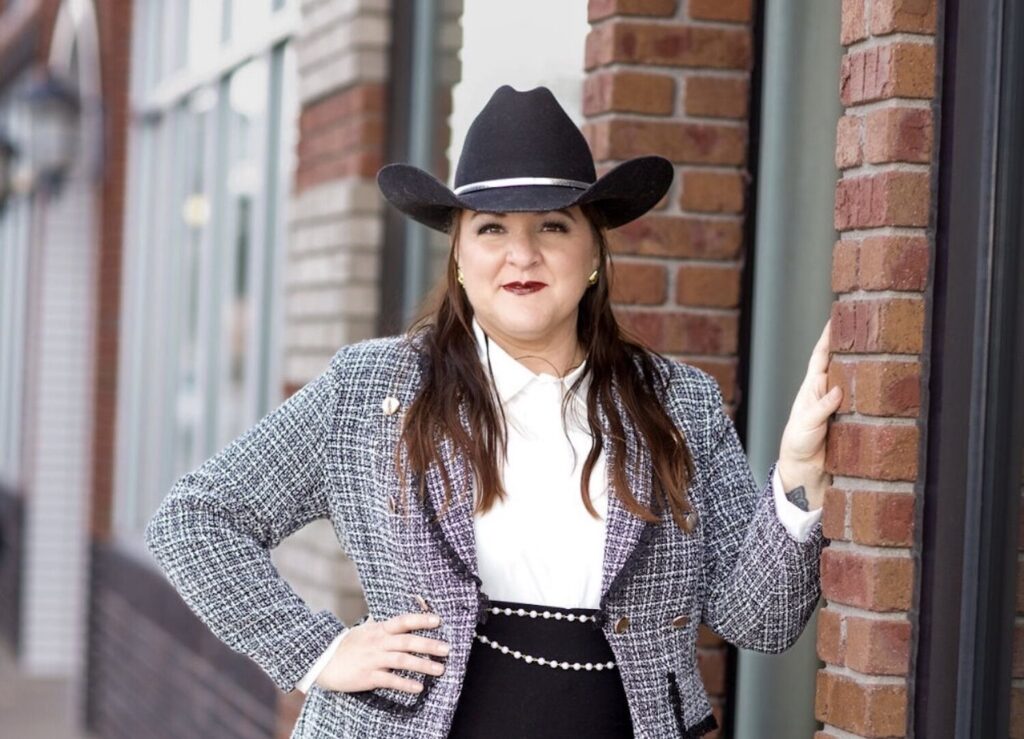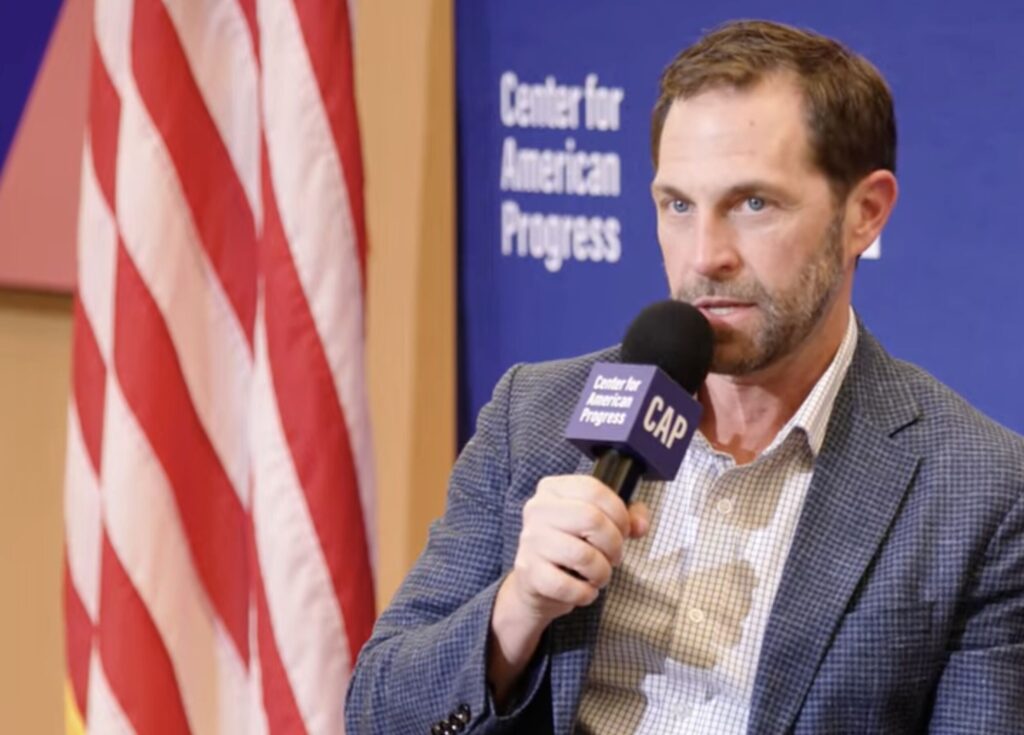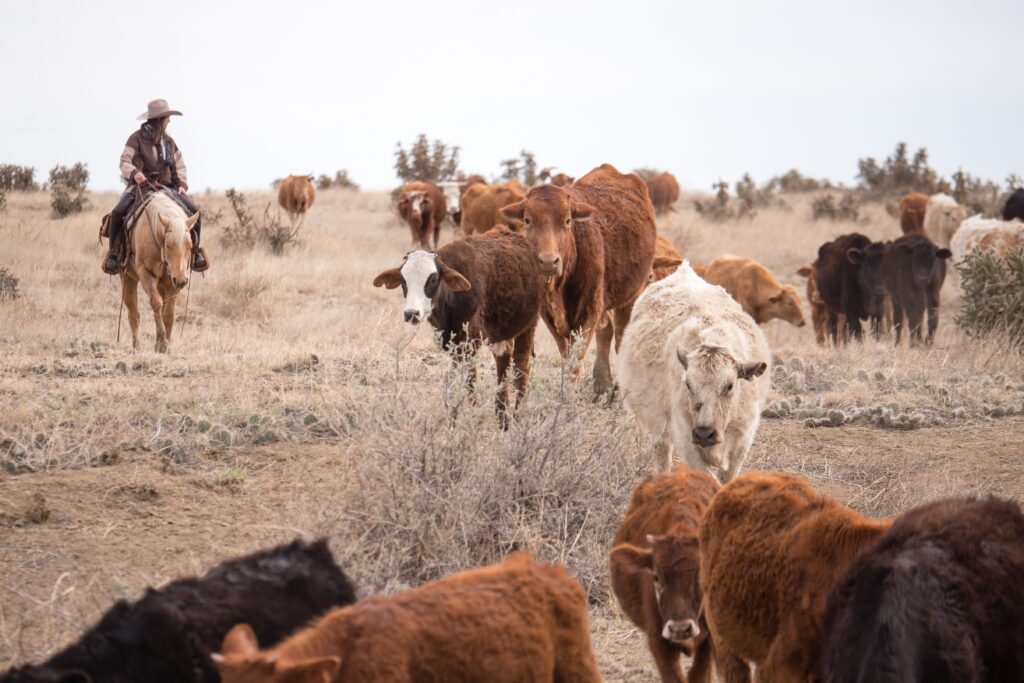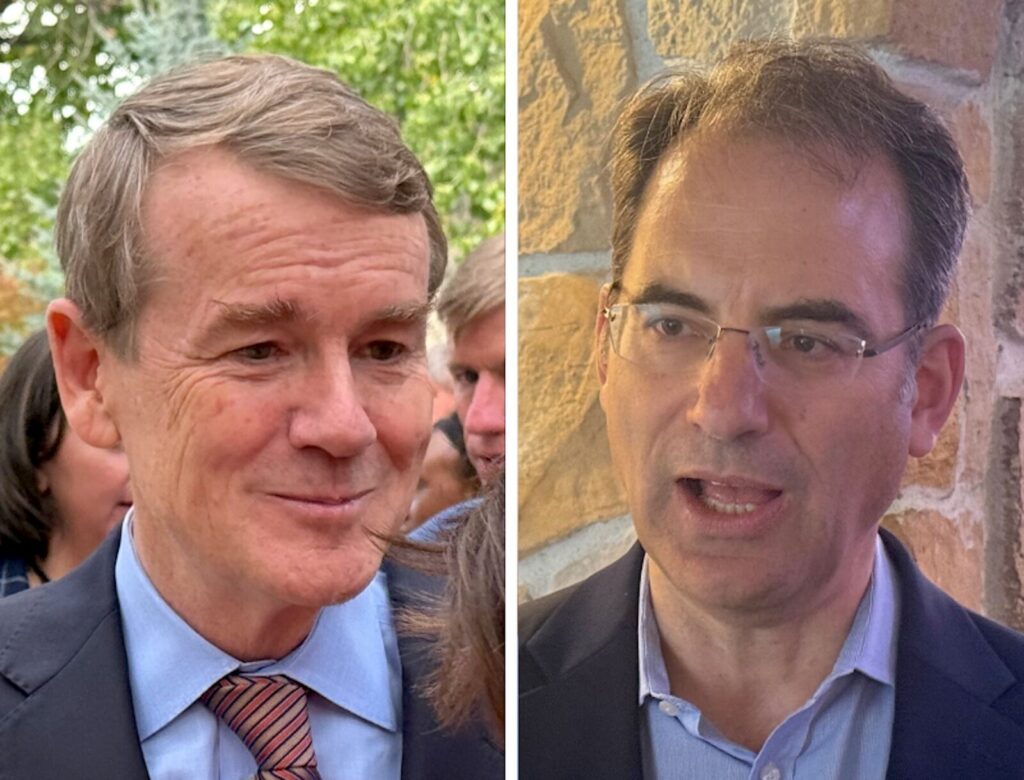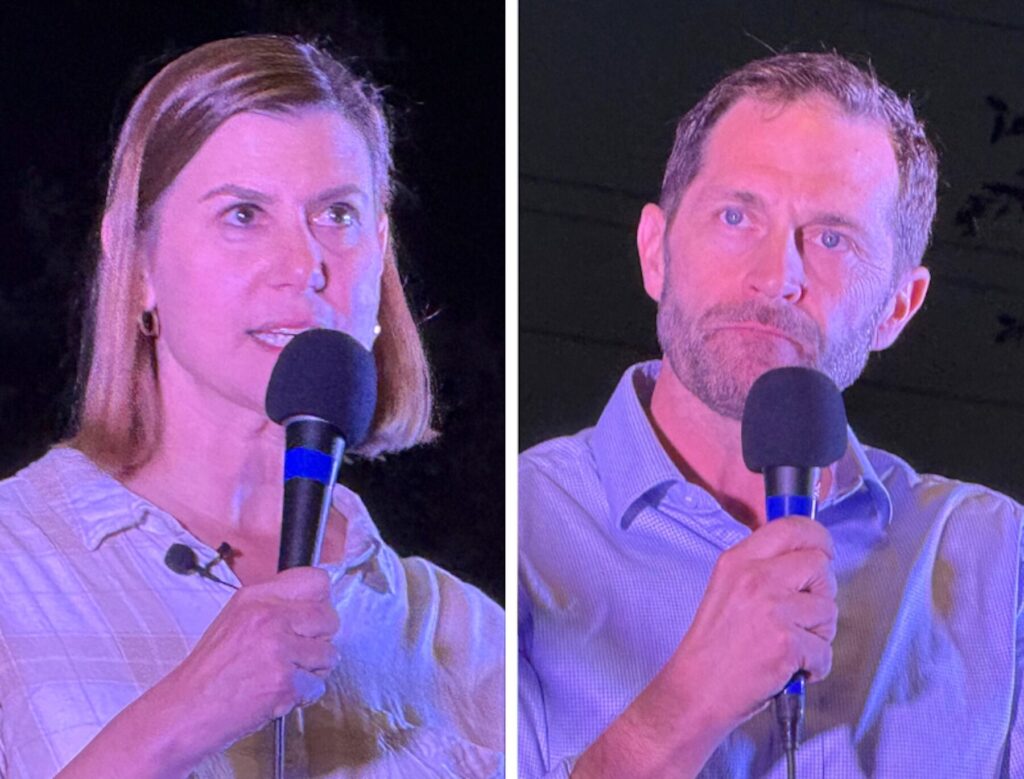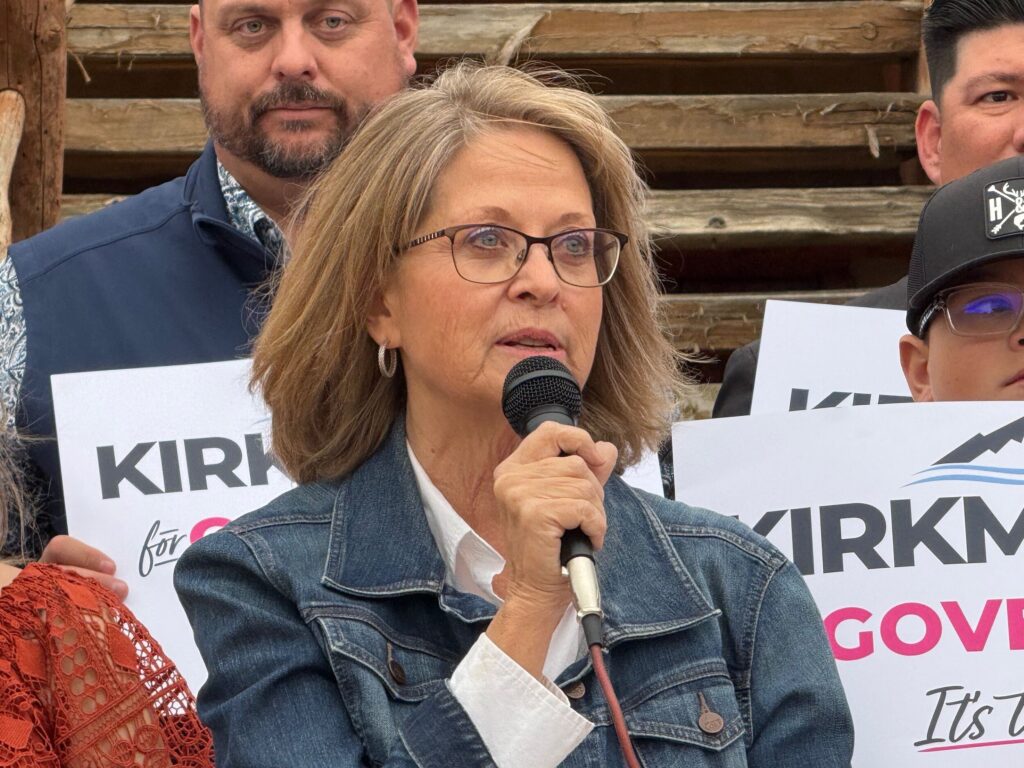Colorado officials scramble to figure out what Trump’s funding freeze means for Colorado
Updated 1/29/25: the Washington Post is reporting the Trump administration has rescinded its freeze on almost 2,600 programs, administered through federal grants and loans to states and nonprofits.
Colorado officials scrambled on Tuesday to figure out what President Donald Trump’s order to freeze federal funding — ultimately aimed at dismantling “DEI, woke gender ideology, and the green new deal” — means for the state.
The directive, issued late Monday by the Office of Management and Budget, instructed all federal agencies to put a temporary pause on federal spending related to the incoming administration’s flurry of executive orders, “including, but not limited to, financial assistance for foreign aid, nongovernmental organizations, DEI, woke gender ideology, and the green new deal.” It requires a review of all such spending for consistency with current presidential policies.
A federal judge temporarily blocked the plan late Tuesday in response to a lawsuit filed by a national consortium of nonprofit groups. Also on Tuesday, Colorado’s Democratic Attorney General Phil Weiser joined with attorneys general from more than 20 other states in a separate lawsuit that argued the move was an illegal violation of the separation of powers.
The judge’s stay, prompted by a lawsuit brought by nonprofit groups, lasts until Feb. 3.
What does the freeze mean for Colorado?
It’s not immediately clear how the freeze would impact federal funding for state and local programs, and officials from both sides of the aisle acknowledged the confusion the order created.
One of the big questions is what happens now after the state received notice of awards through the Inflation Reduction Act and the Infrastructure Investment and Jobs Act. Colorado has so far received more than $10 billion through Nov. 20, 2024 from the two federal programs.
Before Trump’s administrative order, the outgoing Biden administration rushed to announce hundreds of millions in dollars that were supposed to be headed for Colorado for bus rapid transit ($150 million), water projects all over the state ($177 million), and road and bridge repairs ($17 million).
Also potentially at risk is $66.4 million in federal grants for Front Range Passenger Rail, which officials announced last October. The project is years away from beginning construction and is undergoing a “service development plan” for the Federal Railroad Administration, due at the end of the year.
State officials are scrambling to figure it out
Federal funding is inherently tied to Colorado’s annual budget.
For example, of the Department of Local Affairs $379 million spending plan for 2024-25 budget, $124 million comes from federal funding.
Two community grant programs — the community development block grant and the community services block grant — are 100% reliant on federal funds, more than $15 million between them.
Almost half of the agency’s affordable housing construction grant and loan program’s $34 million comes from federal funds.
The agency also relies on federal dollars for its low-income rental assistance program, about $84 million in federal dollars out of the program’s total funding of $105 million.
“The guidance in this memo lacks clarity and has created chaos about the potential impact on DOLA’s programs and the Coloradans we serve,” Maria deCambra, the agency’s executive director, told Colorado Politics. “We are closely tracking the consequences of this pause and possible cuts in Federal funding for Colorado.”
The agency identified about $4.2 million in payments that officials believe are at risk, beginning with $1.7 million in contracts for the community services block grant program. The funds provide for meals in Baca County, monthly rents for seniors on fixed incomes in Broomfield County, health services in Delta County, and court-appointed advocates for kids in Colorado Springs.
The agency also said it is “gravely concerned” about funding for its Section 811 program, which pays for rental subsidies that assist 60 very low-income families with significant and long-term disabilities, funding for grants to prevent homelessness that services about 30,000 Coloradans, a housing grant for people with AIDS, and a competitive program to local government, non-profit and private developers to build, buy or rehab affordable housing for rent or ownership.
What about Medicaid?
Officials also worried about Medicaid, which, by far, is the largest spending item in Colorado’s 2024-25 budget.
The Department of Health Care Policy and Financing, which operates the Medicaid program, was appropriated $15.9 billion for 2024-25, with $9 billion coming from the federal government.
Multiple news reports said the Medicaid payment portal, which is how states access their Medicaid funding, was frozen in all 50 states.
Trump Press Secretary Karoline Leavitt said the White House was aware of the Medicaid website portal outage but added that no payments have been affected.
“They are still being processed and sent. We expect the portal will be back online shortly,” she said on X.
Marc Williams of the state Department of Health Care Policy and Financing verified that the portal was back up on Tuesday afternoon.
Initially, the state agency could not access federal funds yesterday, or this morning by standard operating procedures, Williams told Colorado Politics.
But by Tuesday afternoon, the agency regained access the federal payment system and could submit requests for matching funds.
“We are now awaiting the wire transfer of funds from the federal government. Given HCPF’s Medicaid and Child Health Plan Plus (CHP+) operational pay cycle, care providers and other partners should expect payments yesterday, today, and Wednesday,” he said. “We are anticipating federal fund transfers to enable future payments and will keep you informed as we work with our federal and state partners on this urgent matter.”
Denver Health also raised concerns about the impact of the freeze on their operations.
The pause announced by the White House on all federal grant funding “is jarring to the many leaders, clinicians and researchers across our health system who rely on federal funding to provide essential, life-saving care to our community through our federally qualified health centers, public health institute, community programs and more,” the Denver Health statement said.
“We are working to determine the full scope of impact on Denver Health, as we know this affects clinical care, research and our academic mission. In 2024, Denver Health received $89 million in federal grant funding that goes to programs and personnel.” The statement added that denying critical funding that supports medical and social needs of patients “will have direct impacts on the health and well-being of Coloradans across the state.”
Worries abound
In a statement, the Colorado Behavioral Healthcare Council said it is worried about “Hundreds of thousands of individuals” who rely on the publicly funded safety net to receive care for, among other things, mental illness and substance use disorder, as well as for crisis support.
The certainty for those services are “now in limbo,” the council said.
Meanwhile, Fran Satantata, who spent 20 years in emergency preparedness, noted that people often think the states pay for day-to-day operations. Much of that funding actually comes from the federal government, she said.
It’s preparedness that could take a hit, she said.
Colorado to join lawsuit
In a statement, Attorney General Phil Weiser said he plans to join a separate lawsuit aimed at overturning Trump’s order.
Calling the move “reckless and unprecedented,” Weiser said said the order “takes the power of the purse away from Congress, violates the separation of powers, and is already causing massive harm in Colorado, undermining the delivery of healthcare, education, and public safety.”
Weiser’s “power of the purse” language is a reference to the Congressional Budget and Impoundment Control Act of 1974, which, under its section on impoundment control, prevents the president and other government officials from “unilaterally substituting their own funding decisions for those of the Congress.”
Democrat lambast freeze
Democratic officials, who hold the levers of power in Colorado, criticized the order.
Gov. Jared Polis said the funding pause “hurts children and hardworking families, jeopardizes American jobs and businesses, harms hospitals and safety net health providers, threatens road and bridge repairs, and impacts countless other programs.”
Colorado House Speaker Julie McCluskie said the order has caused “chaos, confusion, and fear,” which she said was “utterly unnecessary.” She added that the order is “disrupting lives,” calling it “an irresponsible act from a president who doesn’t know what he’s doing.”
Joint Budget Committee Vice-Chair Rep. Shannon Bird, D-Westminster said there was no warning when the state has had a “good” working relationship with the federal government for years.
“This is not how you treat a partner,” she said, adding she is grateful for the temporary stay issued by the D.C. judge.
Bird, whose committee is working to address a $1 billion shortfall in the 2025-26 state budget, said the panel’s members are still assessing the order’s impacts and determining what holes need to be plugged in the state budget.
The state holds an emergency reserve of $236 million as of July 1, 2023.
Bird said it is one-time only money and not a fix for turning the spigot on federal funds off. McCluskie, the House speaker, added that while the state has a substantial reserve, she is “absolutely” opposed to spending it on this situation.
Bird said one of her biggest worries is the state’s payment to medical and behavioral providers to care for Medicaid clients.
She said the state has made “great strides” in trying to raise those rates but that all of that is now at risk. In addition, she said, these are tax dollars that Coloradans pay to the federal government, and “we deserve to get our own money back.”
Bird is also worried about other potential impacts, such as grants for college tuition and funding for K-12 education.
Republicans decry alarmist reaction
Across the ideological aisle, Republicans decried what they described as an overreaction.
U.S. Rep. Lauren Boebert, a Windsor Republican, dismissed complaints about the freeze as misguided and sought to allay fears stoked by news reports.
“Before listening to the fearmongering of Democrats, Coloradans should know the OMB’s action is narrow in scope and does not apply to programs like Medicare, Social Security, Medicaid, SNAP, funding for farmers and small businesses, and programs that provide direct benefits to Coloradans,” Boebert said in a statement, citing the directive’s exemptions for authorized payments directly to individuals.
“This is a necessary, temporary pause for specific programs listed under Executive Orders that must be evaluated as part of following through on President Trump’s promise to cut wasteful spending; our office is working with constituents to address concerns and provide more information as we receive it,” she said.
U.S. Rep. Gabe Evans also dismissed what he described as alarmist rhetoric in response to the freeze in a video the Fort Lupton Republican posted online.
“First, the freeze is temporary and designed to give time for the White House to review where the government is overspending,” Evans said, noting that agencies have until Feb. 10 to report back on their programs.
Conceding that the announcement that sparked the uproar was a “general memo with very little specifics,” Evans derided “the inflammatory, fear-based language you’re hearing from the left,” which he insisted “doesn’t help anyone, nor is it based in fact.”
Evans said he was “supportive of reviewing where our government is too bloated or spending on frivolous initiatives such as DEI,” adding that “this is something the American people want.”
Reporter Ernest Luning and the Associated Press contributed to this report.



